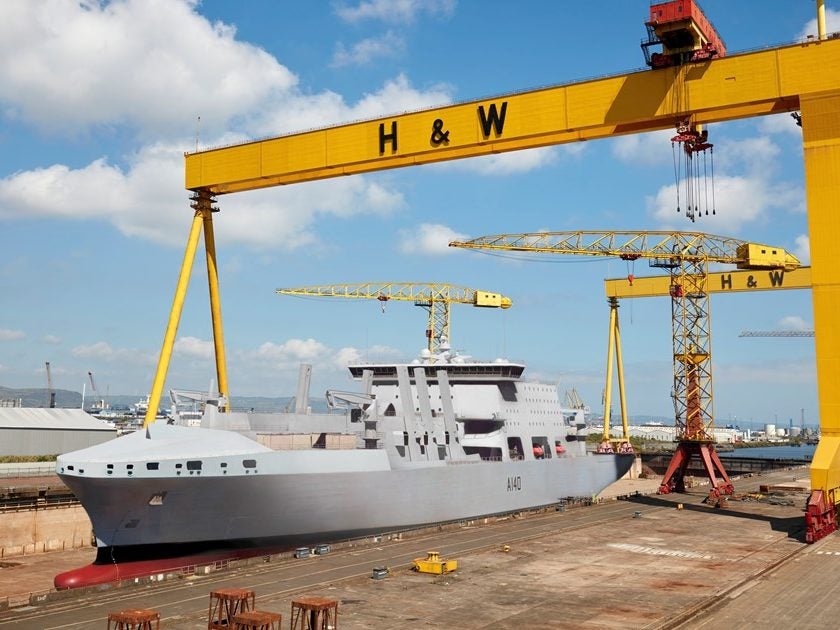
The ships have been a focal point of discussion around UK industry, with several politicians and unions representing the UK shipbuilding sector raising concerns that the ships being built outside of the UK would damage UK’s shipbuilding.
The possibility of an international tender for the ships goes against the UK’s National Shipbuilding Strategy, with one of the strategies key recommendations being the provision of a steady stream of work to UK shipyards.
The Fleet Solid Support Ship contract was officially paused late last year when the MOD said that none of the bidders could the desired value for money on the contract since then the contract has yet to be restarted. Commenting on the status of the programme an MOD spokesperson said: “We continue work on the procurement strategy for the Fleet Solid Support ship and will provide further details when the current stage is completed.”
Naval Technology understands that the ‘Prior Information Notice’ issued by the MOD is aimed at beginning an intelligence-gathering exercise that will be used by the department to make a better decision on the direction of the programme.
A clearer update on the direction of the procurement could be due in the Autumn of this year.
Commenting on the possibility of Fleet Solid Support Ship work going overseas, Prospect union deputy general secretary Garry Graham said: “At a time when the economic priority should be saving jobs and protecting communities – it is a betrayal that the government has deliberately opened the door to thousands of secure highly skilled jobs being sent overseas.
“This decision is economically illiterate and, if the work goes abroad, undermines our sovereign defence capacity and capability. No other government in an advanced economy would make this decision which is so pivotal to our defence posture over the coming decade.”
Graham said that the decision to include international parties in the Fleet Solid Support Ship process would be seen as a ‘betrayal’ by the UK’s manufacturing and shipbuilding community.
The three Fleet Solid Support Ships are seen as critical to the UK’s ability to field two Carrier Strike groups and are set to be used in support of the HMS Queen Elizabeth and HMS Prince of Wales on operations. While deployed the Fleet Solid Support Ships will keep the Carriers stocked with food, ammunition and other supplies.
Last year National Shipbuilding Strategy author Sir John Parker wrote: “There is significant parliamentary, industry and public interest in increasing the number of categories of ships
eligible for UK only competition. While I do not wish to delay or damage the procurement of the Fleet Solid Support ships.
“I recommend that UK-only competition should be considered for future defence-funded vessels including amphibious vessels and mine countermeasure vessels.”
In May, Harland and Wolff, BMT and Spanish shipbuilder Navantia announced they had formed a partnership, ‘Team Resolute, ’to bid for the Fleet Support Ship Programme, in a move that would see some of the work on the vessels taking place in Belfast.
At the time, the trio announced: “Team Resolute combines 159 years of shipbuilding experience at one of the UK’s biggest shipyards, including the two largest dry docks in Europe, with unrivalled auxiliary design experience from UK designer BMT and a world-leading auxiliary shipbuilding track record from Navantia.”
The teaming agreement followed a Memorandum of Understanding (MoU) signed by InfraStrata – the owner of Harland and Wolff – and Navantia last year that raised hopes the Fleet Solid Support Ship contract would be awarded to a UK contractor. The MoU laid the groundwork for further discussion on sharing work on the programme should it be awarded to Navantia.
Under the agreement between the three, BMT would design the ships leveraging its experience designing ships the Tide-class tankers in-service with the Royal Fleet Auxiliary (RFA) which were built by Daewoo in South Korea.



